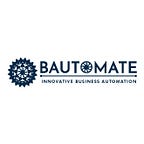Automate Insurance Processes Using Workflow Automation Solution
For decades, the insurance industry has been a leader in embracing new technologies. Risk management, efficient new client acquisition, and improved customer experience are the main drivers to embrace technology advancements. Automating insurance workflows is the insurance industry’s top objective in order to stay ahead of the curve.
Intelligent workflow automation is revolutionizing the insurance industry by streamlining and enhancing insurance workflows. By automating repetitive tasks and leveraging data-driven insights, insurance companies can significantly improve efficiency, accuracy, and customer experience. Insurance companies using intelligent workflow automation achieved a 33% reduction in customer complaints, demonstrating the positive impact of automation on customer experience and satisfaction.
Workflow automation is changing insurance processes and let’s look at the advantages it offers the sector.
What is Intelligent Workflow Automation and How it Can Help Insurance Companies?
Intelligent workflow automation refers to the use of advanced technologies that can revolutionize the insurance industry by streamlining processes and eliminating manual tasks. Insurance automation technology uses AI and ML algorithms to automate tedious business processes such as claims processing, underwriting, customer service, and more. By automating these processes, businesses can reduce insurance operational costs by up to 30% while improving process efficiency by 60–90%. It also helps to increase operational efficiency by allowing employees to focus on more important tasks such as analyzing data or providing personalized services. In short, workflow automation has the potential to revolutionize the way insurance companies do business in the future.
Benefits of Using Intelligent Workflow Automation in the Insurance Industry
Let’s look at some examples of insurance workflows that can be automated,
Streamlining Claims Processing:
Claims processing is a critical and often time-consuming task for insurance companies. Workflow automation can be applied to this process to automate manual data entry, document verification, and fraud detection. OCR can extract relevant information from various documents and automate the claim validation process. It can identify suspicious patterns and flag potentially fraudulent claims and reduces claim processing time by 30–50%, leading to faster claim settlements and improved customer satisfaction.
Improving Underwriting and Risk Assessment:
Significantly enhances underwriting and risk assessment processes. By analyzing vast amounts of structured and unstructured data, including historical claims data, market trends, and customer information, AI algorithms can generate accurate risk profiles and make informed underwriting decisions. Workflow automation accelerates the underwriting process, enabling insurers to provide more timely coverage to their clients. Insurers using intelligent automation for underwriting processes have seen a 15–20% improvement in risk selection and pricing accuracy.
Enhancing Customer Service:
Customer service is a crucial aspect of the insurance industry, and workflow automation can greatly improve the overall experience for policyholders. Cognitive assistants can handle routine customer queries and guide customers through the claims process. It can handle up to 80% of routine customer inquiries, reducing customer service costs and providing 24/7 support leading to increased customer satisfaction and loyalty.
Optimizing Policy Management:
Managing insurance policies involves a multitude of administrative tasks, including policy issuance, updates, renewals, and cancellations. Workflow automation can automate these processes by integrating policy management systems with AI algorithms. This integration enables real-time data validation, policy comparisons, and automated notifications, ensuring policyholders receive accurate and timely information. Automation also reduces the chances of errors and minimizes manual intervention, freeing up valuable time for insurance professionals to focus on strategic initiatives.
Leveraging Data Analytics for Decision Making:
Workflow automation empowers insurers to harness the power of data analytics for better decision-making. By aggregating and analyzing data from various sources, such as customer interactions, claims data, and market trends, AI algorithms can provide actionable insights and predictive analytics. These insights can assist in identifying potential risks, developing personalized products, optimizing pricing strategies, and improving overall business performance.
Implementing an Intelligent Workflow Automation Solution for Insurance Companies
By implementing Bautomate’s intelligent workflow automation solution, insurance companies can automate routine processes and free up resources to focus on more important tasks. Prior to implementing a workflow automation solution, you must first decide which specific business activities it will be used for and identify the process that is manual and time-consuming in order to implement automation.
Workflow automation is reshaping the insurance industry by revolutionizing traditional workflows. Embracing intelligent automation allows insurance companies to adapt to changing customer expectations, and make data-driven decisions. As the industry continues to embrace digital transformation, intelligent workflow automation will play a crucial role in shaping the future of insurance. Get a free demo and automate your workflows with Bautomate.
